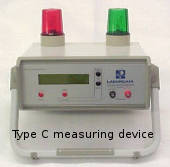More than 30 years ago the first FIBCs appeared on the market. Everybody had a premonition that they would experience a great future but nobody at the time knew how to classify them in terms of safety. There were no existing rules which were applicable. At the end of the '70s the first standardisation committee had been set up by the British Standards Institution and at the beginning of the `80s many of the European FIBC manufacturers which had meanwhile become established joined together by founding the European Flexible Intermediate Bulk Container Association (EFIBCA). One of the first and most important decisions of EFIBCA had been to draw up its own standards in order to demonstrate to the market that EFIBCA members are obliged to maintain high quality products. From the very beginning all the standards set out clear and precise regulations with regard to the marking of FIBCs. Therefore every FIBC must have a label carrying precisely defined data. In the new European Standard EN 1898, which hopefully will soon become an ISO Standard, a guideline is shown regarding the precise layout. Labels are not decorative flags, the contents and design of which are determined by the manufacturers or suppliers. It is not up to these people to choose what information is included and what is omitted. Labels represent a proof of safety and are legally binding. Incomplete information an the labels can have serious consequences. Those who use incorrect labels - or no labels at all - or who remove labels in order to hide the origin or technical specification of the bag, behave irresponsibly and should be dealt with by the public prosecutor.
SAFETY LAST
Rent used single-trip FIBCs! You will get back two-thirds of your payment after returning the bags to us. |
This really happens. There is a booming business in which the participants disregard all standards and safety regulations. This big business is carried out through a combination of naivity, stupidity, inconsiderateness and criminal intent. Dubious companies indiscriminately buy used FIBCs of every kind, don't give a thought for safe working loads and safety factors, remove or forge labels and they do indeed find users for these products. The users of these potentially hazardous FIBCs are characterised by the same negative attributes as the sellers. In fact their role in this dangerous practice is even more reprehensible, because they are responsible for putting these FIBCs to use with no consideration for the dangers to life and limb. They are legally liable not only for damage which results from their failure to observe the safety regulations but in the case of an accident they must reckon an a punitive fine and/or imprisonment. Serious manufacturers of FIBCs which choose to adopt a responsible attitude find themselves powerless to prevent these wheelings and dealings. In most cases they don't get to hear what happens to their FIBCs at the other end of the world.
WHAT IS TO BE DONE?
The FIBC industry should look for an opportunity to counteract this black market. This is a task best tackled by the FIBC Associations since, after all, they are representing the interests of their members. They must sensitize and educate the users, they must cooperate with the competent authorities (safety organisations, accident insurance bodies, etc) so that they are in a position to take effective action and in exceptional cases they should institute legal proceedings accompanied by effective publicity. |
These measures can be taken only if each case is reported, as soon as it becomes known, to a central registration point. Such an address should be set up under the umbrella of an international Organisation such as, for example, EFIBCA. Here an appropriate committee should be formed and an agreed course of action be implemented for dealing with all complaints. In order not to lose any time LABORDATA offers to provide its services temporarily as an assembly point for Information (which of course would be treated in strict confidence). It should be borne in mind that this course of action can only prove successful if there is a plentiful and steady response. Therefore do not hesistate to send information in as much detail as possible regarding flouting of regulations. We will assemble the data and pass it on to the committee which, it is to be hoped, will shortly be formed. Such a procedure is the only way to stop this dangerous development spreading. Unfortunately the marsh cannot be drained completely. It will remain a never ending sisyphean task.
Note: There are some reputable companies working in the field of FIBC reconditioning, whereby the bags remain in a closed loop: i.e. they are reused by the first user. Of course only multi-trip FIBCs are eligible for this treatment (standard duty SF = 6:1, heavy duty SF = 8:1 and UN-FIBCs under the condition that they are in compliance with these stringent regulations). There can be no objection to this procedure provided it is carried out responsibly and in accordance with the rules. Quite the reverse, it is a good thing from an ecological and economic viewpoint. Professionals relieve the user of the responsibility of checking, cleaning - and where appropriate - repairing the FIBCs. Otherwise users are obliged to deal with these problems in their own plants and factories.
|










